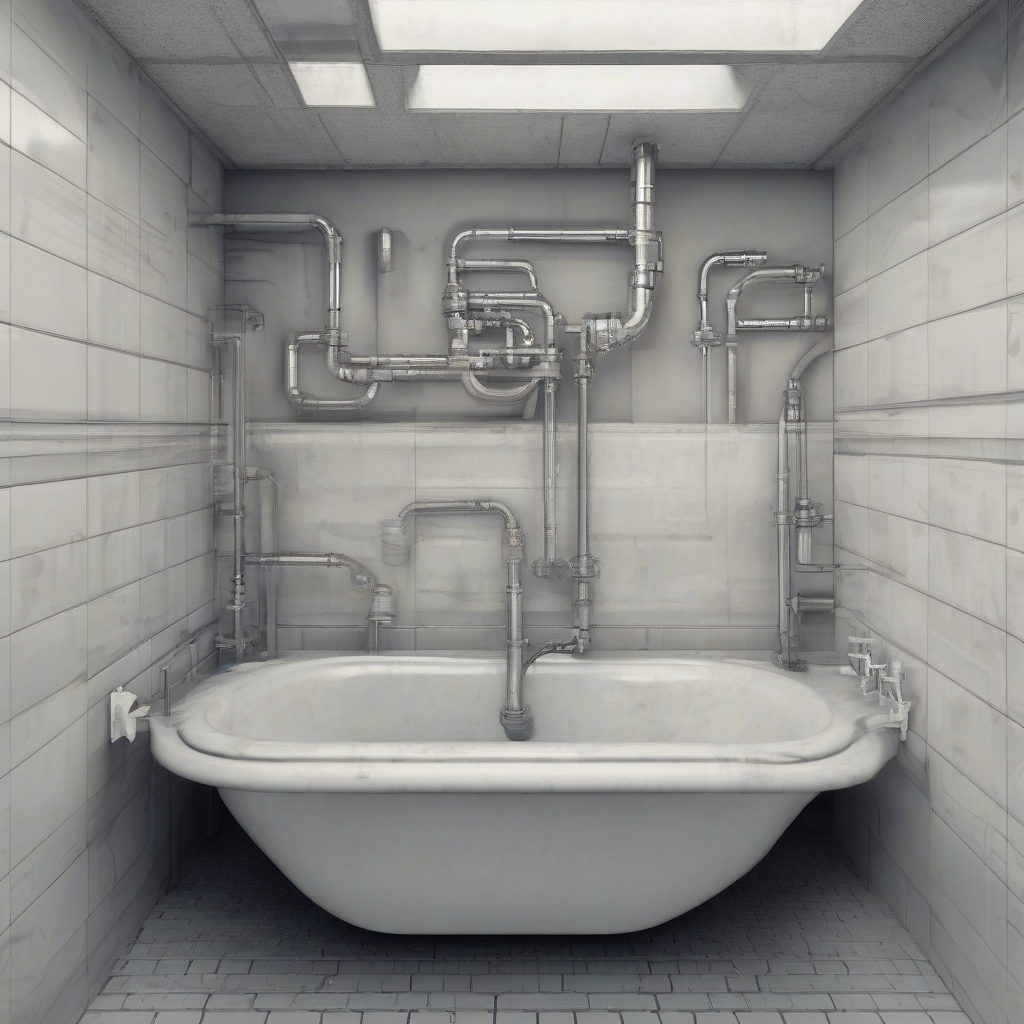Plumbing: A Deep Dive into a Vital Industry
The plumbing industry, often overlooked in discussions of major economic sectors, is a critical component of modern society. It’s far more than just fixing leaky faucets; it encompasses a complex network of skilled professionals, advanced technologies, and essential services that impact public health, safety, and infrastructure.
The Scope of the Plumbing Industry
The plumbing industry is incredibly diverse, ranging from residential work to large-scale commercial and industrial projects. This breadth necessitates a wide array of skills and expertise, making it a multifaceted and dynamic field.
- Residential Plumbing: This is arguably the most visible aspect of the industry, encompassing the installation, maintenance, and repair of plumbing systems in homes and apartments. This includes tasks such as fixing leaky pipes, installing toilets and sinks, and maintaining water heaters.
- Commercial Plumbing: This sector deals with larger-scale projects in buildings such as offices, shopping malls, and restaurants. It often involves more complex systems and requires specialized knowledge in areas like fire protection systems, drainage, and water treatment.
- Industrial Plumbing: This specialized area focuses on the plumbing needs of factories, manufacturing plants, and other industrial facilities. It often involves handling hazardous materials and working with high-pressure systems, requiring advanced training and safety protocols.
- Municipal Plumbing: This segment encompasses the planning, installation, and maintenance of water and sewage systems for entire communities. It plays a critical role in public health and requires collaboration with engineers and other municipal professionals.
- Medical Gas Piping: This highly specialized field focuses on the safe and efficient distribution of medical gases within healthcare facilities. It requires rigorous adherence to safety standards and regulations.
Key Roles within the Plumbing Industry
The industry is supported by a diverse workforce with various specializations:
- Journeyman Plumber: A licensed plumber with extensive experience in all aspects of plumbing work.
- Apprentice Plumber: An individual undergoing training to become a journeyman plumber, typically under the supervision of a licensed professional.
- Plumbing Estimator: Responsible for assessing the costs associated with plumbing projects.
- Plumbing Designer: Develops plans and specifications for plumbing systems in new constructions or renovations.
- Plumbing Inspector: Ensures that plumbing installations comply with building codes and safety regulations.
- Plumbing Sales Representatives: Responsible for selling plumbing supplies and equipment to contractors and businesses.
- Plumbing Supply Wholesalers and Retailers: Distribute plumbing materials and equipment to plumbers and contractors.
Technologies and Innovations in Plumbing
The plumbing industry is constantly evolving, integrating new technologies to improve efficiency, sustainability, and safety:
- Smart Plumbing Systems: These systems utilize sensors and automation to monitor water usage, detect leaks, and optimize water consumption.
- PEX Piping: A flexible plastic piping system that is increasingly replacing traditional copper and galvanized pipes, offering advantages in terms of cost and installation.
- Waterless Urinals and Toilets: These eco-friendly fixtures reduce water consumption and contribute to water conservation efforts.
- Leak Detection Technologies: Advanced sensors and acoustic monitoring systems can pinpoint leaks quickly and accurately, minimizing water damage and repair costs.
- 3D Printing in Plumbing: Emerging technologies are exploring the use of 3D printing for creating custom plumbing fixtures and components.
- Robotics in Plumbing: Robots are being increasingly used for tasks such as pipe inspection and cleaning, especially in challenging or hazardous environments.
The Importance of Regulations and Licensing
Given the critical role plumbing plays in public health and safety, stringent regulations and licensing requirements are essential. These vary by jurisdiction but generally involve:
- Licensing and Certification: Plumbers must typically obtain licenses and certifications to demonstrate their competency and adherence to safety standards.
- Building Codes and Standards: Plumbing installations must comply with strict building codes and standards to ensure safety and prevent problems such as water contamination.
- Regular Inspections: Plumbing systems are often subject to regular inspections to ensure compliance and identify potential problems.
- Health and Safety Regulations: Regulations related to the handling of hazardous materials and waste are strictly enforced in the plumbing industry.
Economic Impact of the Plumbing Industry
The plumbing industry significantly contributes to the economy, providing employment for millions of skilled workers and generating billions of dollars in revenue annually. It supports related industries such as manufacturing, distribution, and engineering.
Challenges Facing the Plumbing Industry
Despite its importance, the industry faces several challenges:
- Skilled Labor Shortages: The industry is experiencing a growing shortage of skilled plumbers, hindering its ability to meet the increasing demand for services.
- Aging Infrastructure: Many municipalities are grappling with aging water and sewer systems requiring extensive repairs and upgrades.
- Increasing Material Costs: The cost of plumbing materials has been rising in recent years, impacting project budgets and potentially delaying or canceling some projects.
- Competition: The industry is competitive, with numerous plumbing businesses vying for contracts and customers.
- Environmental Concerns: The industry is increasingly focused on sustainability and reducing its environmental impact through water conservation and responsible waste management.
Future Trends in the Plumbing Industry
The future of the plumbing industry is likely to be shaped by several emerging trends:
- Increased Automation and Technology Adoption: The use of smart technologies and robotics will continue to grow, improving efficiency and reducing labor costs.
- Focus on Sustainability and Water Conservation: The industry will place an increased emphasis on eco-friendly practices and water conservation strategies.
- Growing Demand for Skilled Labor: The ongoing shortage of skilled plumbers will continue to drive demand for training and apprenticeship programs.
- Increased Specialization: Further specialization within the industry is likely, with plumbers developing expertise in specific areas like medical gas piping or industrial plumbing.
- Integration of Big Data and Analytics: The use of data analytics to optimize operations, predict maintenance needs, and improve service delivery will increase.
Conclusion (Not included as per instructions)

